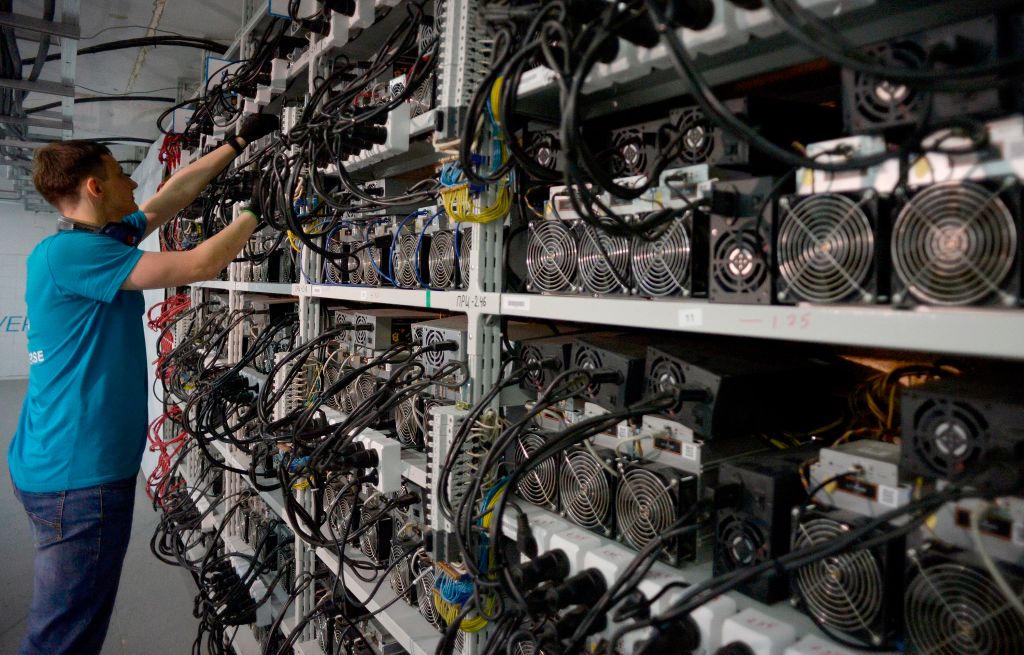‘Virtual’ Data Center Power Startup VPS Eyes Crypto Mining Market
The company sees an opportunity in helping already extremely efficient miners get closer to 100 percent utilization.
August 12, 2021

Virtual Power Systems, the startup whose technology automates dynamic power distribution in data centers, has found an opportunity to expand its addressable market beyond traditional data centers: cryptocurrency mining facilities.
Unlike traditional data centers, crypto mining companies tend to squeeze every last bit of capacity they can out of their computing infrastructure. VPS sees a big potential business opportunity in helping them close that tiny final gap, the few percent of capacity they haven’t managed to harness.
VPS has “an engagement going on right now, which is proving out the concept” with a crypto mining company, Dean Nelson, the startup’s CEO, told DCK. He didn’t name the prospective client.
According to Nelson, VPS can help crypto miners in two ways: give them extra power in a rack when needed and correct phase imbalances. With those two capabilities, miners can theoretically compute with fewer interruptions and generate more crypto tokens over time.
“Now, you could drive these things from 95 percent [utilization] to 99 percent,” he said. “And then your amount of kilowatt hours consumed to be able to do the work goes up.”
“So, there is an opportunity there. If I can do more hash rates, I could actually make more money.”
Each rack in a data center normally has a set amount of power provisioned to it. Data center users, especially colocation data center customers, overprovision power to avoid hitting a ceiling in the future. Infrastructure is also overprovisioned to provide backup in case something goes wrong.
VPS says its software and hardware releases that “stranded” capacity to distribute power more efficiently. It can provision more power to a rack or less, depending on the immediate need. A new capability VPS has in the works is varying reliability, also based on application needs.
The crypto use case for VPS is different. Mining facilities don’t have the kind of mission-critical, can’t-ever-fail design goals regular data centers do, so they don’t provision extra power headroom or build redundant infrastructure. They are optimized for maximum return on investment in hardware and energy. Uptime is secondary.
With so little headroom, even a small spike or phase imbalance can trip a circuit, and there’s no backup circuit to fall back on.
Of course, it’s not as essential for mining equipment to keep running around the clock as, say, for a hospital’s IT systems. Still, the less downtime they experience, the more time they spend computing to generate cryptocurrency, which is where Nelson believes VPS’s power bursting and phase balancing capabilities can help – especially at the scale that some crypto mining businesses have now reached.
Dean Nelson talked about the market opportunity VPS sees in the cryptocurrency mining space as part of a recent wide-ranging interview for The Data Center Podcast. Listen to the entire conversation here or anywhere you get your podcasts.
“I visited a number of those facilities and worked with a number of people, and they really have... their business down,” he said. “It's no longer this Wild West element. It's a business.”
It’s not uncommon for a miner to deploy a 2MW container for mining equipment and get it up and running in two days at total build cost of less than $200,000 per megawatt, according to Nelson. By contrast, in the world of traditional brick-and-mortar data centers, $7 million per megawatt is on the low end of the price range and six months is considered an outstandingly short lead time.
The Cambridge Bitcoin Electricity Consumption Index currently estimates that the total power load of the computing infrastructure mining bitcoin alone is about 10.65GW.
“There's just this massive amount [of crypto mining taking place] and it's not slowing down,” Nelson said.
Hear our interview with VPS CEO Dean Nelson in full on The Data Center Podcast.
About the Author(s)
You May Also Like



.jpg?width=700&auto=webp&quality=80&disable=upscale)



